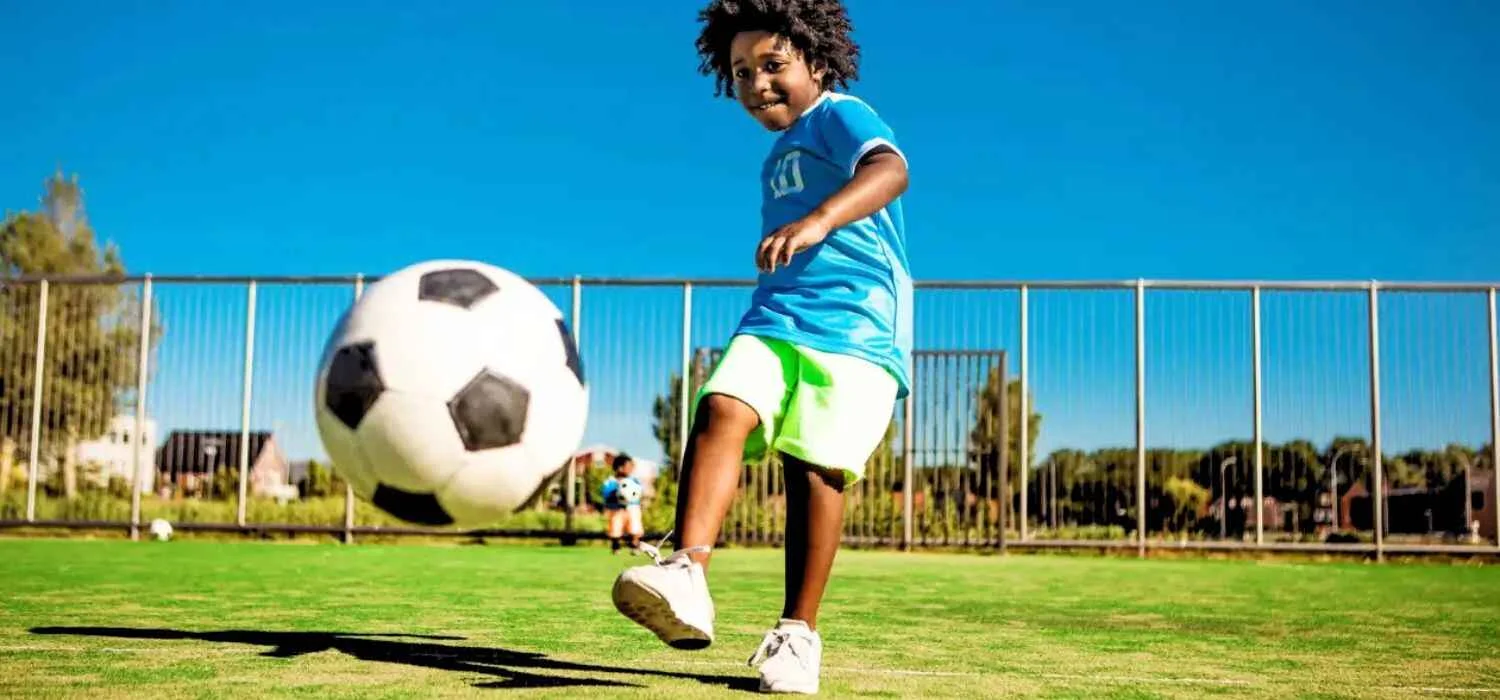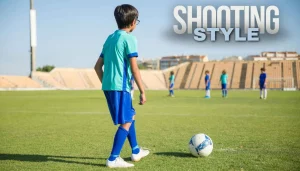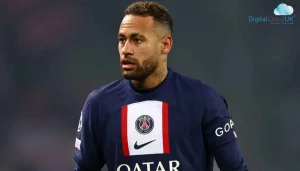When evaluating young football talent, scouts employ a keen eye for identifying potential. For children as young as seven, the assessment criteria encompass various physical, technical, and psychological attributes. In this detailed article, we delve into the top ten things football scouts look for in 7-year-olds.
Key Statistics
Attribute |
Description |
Average Performance |
| Speed and Agility | Quick sprinting, fast direction changes | 7-year-olds: 4.2 sec (30m dash) |
| Stamina and Endurance | Sustained energy, maintaining performance levels | Can sustain play for 20-30 mins without rest |
| Coordination and Balance | Control of body, stability, effective movement | High stability and movement precision |
| Ball Control | Manipulating the ball with both feet, dribbling, first touch | 80% successful dribbles in training drills |
| Passing Ability | Accurate and timely passes, vision to execute the right pass | 75% pass completion rate in match scenarios |
| Shooting Technique | Power and accuracy in shooting, ability to use both feet | 60% shooting accuracy in practice sessions |
| Positioning and Awareness | Understanding role, advantageous positioning | Consistently in correct positions during play |
| Decision Making | Making quick, smart decisions | 70% correct decision-making rate under pressure |
| Confidence and Composure | Self-assurance, calm under pressure | High confidence, low anxiety levels reported |
| Coachability and Attitude | Willingness to learn, positive interaction with coaches | 90% positive feedback from coaches |
1. Physical Attributes
Speed and Agility
Scouts prioritize speed and agility as essential traits. A child who can sprint quickly and manoeuvre easily demonstrates the foundational physical prowess needed for football. Scouts observe how swiftly a child can change directions and accelerate from a standstill position.
Stamina and Endurance
Both are are vital, even at a young age. Scouts look for children who can maintain a high level of energy throughout practice sessions and games. This endurance indicates a child’s potential to handle the demands of the sport as they grow older.
Balance and Coordination
Proper balance and coordination are crucial for performing complex football manoeuvres. Scouts assess how well a child can maintain stability while dribbling, shooting, or defending. Excellent coordination often correlates with better performance on the field.
2. Technical Skills
Ball Control
In 2024, Ball control is a fundamental skill that scouts pay close attention to. A young player’s ability to handle the ball with precision while moving indicates a strong potential for development. Scouts watch for proficiency in dribbling, trapping, and maintaining possession under pressure.

Boy kicking a ball
Passing Accuracy
Accurate passing is another critical skill. Scouts look for children who can deliver precise passes to teammates, showcasing their understanding of the game and ability to collaborate effectively. Both short and long passes are evaluated for accuracy and technique.
Shooting Technique
Scouts are keen on observing a child’s shooting technique. They assess the power, accuracy, and consistency of shots. Children who demonstrate an ability to shoot effectively with both feet are particularly valued for their versatility.

Shooting Style
3. Game Intelligence
Spatial Awareness
As they say, Spatial awareness involves understanding one’s position relative to the ball, teammates, and opponents. Scouts look for young players who can navigate the field strategically, making intelligent decisions that indicate a high level of game understanding.
Decision-Making
Effective decision-making under pressure is a hallmark of a promising player. Scouts assess how quickly and wisely a child can decide during play, such as choosing when to pass, shoot, or hold the ball. Rapid, sound decisions are a positive indicator.
4. Psychological Attributes
Passion and Enthusiasm
A child’s passion and enthusiasm for football are vital attributes. Scouts notice how excited and engaged a child is during games and training sessions. Genuine passion often translates into dedication and a strong work ethic, essential for long-term development.
Coachability and Attitude
Coachability and a positive attitude are significant factors. Scouts look for children who are eager to learn, accept feedback gracefully, and show respect towards coaches and peers. A good attitude and willingness to improve are crucial for growth in the sport.
5. Physical Development Potential
Growth and Athleticism
Scouts consider a child’s growth and athleticism potential. While current abilities are important, scouts also look at a child’s physical attributes to gauge their future development. This includes their height, body composition, and general athletic ability, which can influence their suitability for different positions on the field.
6. Social Skills
Teamwork and Communication
Effective teamwork and communication are vital for success in football. Scouts observe how well children interact with their teammates, support one another, and communicate during the game. A player who can work cohesively within a team environment is highly valued.

Scout Guiding Kids
7. Creativity and Flair
Innovative Play
Creativity and flair can make a young player stand out. Scouts appreciate children who bring an element of creativity to their game, whether through innovative dribbling, unexpected passes, or creative solutions to challenges on the field. This can indicate a natural talent and an ability to think outside the box.
8. Resilience and Determination
Perseverance
Resilience and determination are crucial traits for any aspiring footballer. Scouts are impressed by children who show perseverance in the face of adversity, such as bouncing back from mistakes or losses. This resilience is essential for long-term success in the sport.
9. Parental Support
Family Involvement
Parental support plays a significant role in a child’s football journey. Scouts often consider the level of encouragement and support a child receives from their family. Positive reinforcement and a supportive environment can greatly enhance a young player’s development and commitment to the sport.
10. Love for the Game
Passion and Enthusiasm

Kids Playing Football
Finally, a genuine love for the game is perhaps the most important attribute. Scouts look for children who display a natural passion and enthusiasm for football. This love for the sport drives motivation, dedication, and the joy of playing, all of which are essential for a successful football career.
Real Life Case Studies of Scouts Scouting Young Players
1. Lionel Messi
Lionel Messi’s journey is one of the most iconic in football history. Spotted by scouts at the age of seven, Messi joined the local club Grandoli, where his talent quickly became evident. Despite his small stature, his dribbling skills and quick feet caught the eye of FC Barcelona scouts when he was 13. They offered to cover his medical bills for growth hormone treatment, leading to his historic career with the club.

Lionel Messi
2. Wayne Rooney
Wayne Rooney was discovered by Everton scouts when he was just nine years old, but his football journey started even earlier. Rooney was playing for the local Liverpool Schoolboys at the age of seven when scouts noticed his natural goal-scoring ability and physical presence on the field. He joined Everton’s youth team and made his professional debut at 16.

Wayne Rooney
3. Kylian Mbappé
Kylian Mbappé was scouted by AS Bondy, a local club, when he was six. By seven, he was already showing signs of extraordinary speed and technical skills. His performances at local tournaments attracted scouts from France’s top clubs, eventually leading to his move to Clairefontaine, France’s national football centre, and later, Monaco, where he launched his professional career.

Kylian Mbappe Sprinting
4. Neymar Jr.
Neymar’s football talent was apparent from a very young age. Playing street football in Brazil, he was scouted by Santos FC at the age of seven. His flair, creativity, and agility made him stand out, and he joined the Santos youth academy, where he developed into one of the world’s most exciting football talents.

Neymar Junior
5. Marcus Rashford
Marcus Rashford joined Fletcher Moss Rangers, a local youth club, at the age of five. By seven, Manchester United scouts had already taken notice of his incredible pace and technical skills. He joined the Manchester United academy and progressed through the ranks, making his first-team debut at the age of 18.

Marcus Rashford Celebrating
6. Gareth Bale
Gareth Bale was identified by Southampton scouts when he was nine, but his journey began earlier. At seven, playing for his school team in Cardiff, Bale’s speed and left-footed precision were already catching attention. His performance in local leagues led to his move to Southampton’s youth academy, where he began his professional career.

Gareth Bale Clapping
7. Jadon Sancho
Jadon Sancho’s talent was spotted early when he was playing for Watford’s academy. By the age of seven, he was already on the radar of top scouts due to his dribbling and goal-scoring prowess. He later moved to Manchester City’s academy before making a name for himself at Borussia Dortmund.

Jadon Sancho
8. Phil Foden
Phil Foden joined Manchester City’s academy at the age of eight. His technical ability and football intelligence were evident from his early years playing in Stockport. Scouts were particularly impressed with his vision and composure on the ball, traits that have defined his career with Manchester City and the England national team.

Phil Foden Smiling
Tables with Authentic Football Scouting Statistics
Qualities Scouts Look for in Young Footballers
|
Quality |
Explanation |
|
Technical |
Ball control, dribbling, passing accuracy, shooting skills |
|
Physical |
Speed, agility, endurance, strength |
|
Psychological |
Mental resilience, game intelligence, decision-making |
|
Social |
Teamwork, communication, leadership |
Scouting Success Rates by Age Group
Age Group |
Success Rate (%) |
Notable Players |
|
6-8 |
20 |
Lionel Messi, Neymar Jr., Jadon Sancho |
|
9-12 |
35 |
Wayne Rooney, Gareth Bale, Phil Foden |
|
13-15 |
45 |
Kylian Mbappé, Marcus Rashford |
|
16-18 |
50 |
Trent Alexander-Arnold, João Félix |
Each of these players not only showed exceptional talent early on, but also had the right support and development opportunities to reach the highest levels of professional football.


